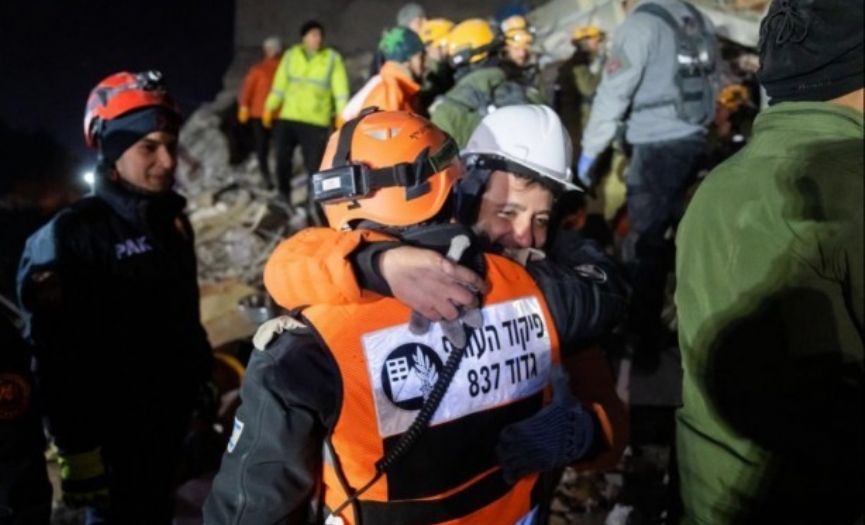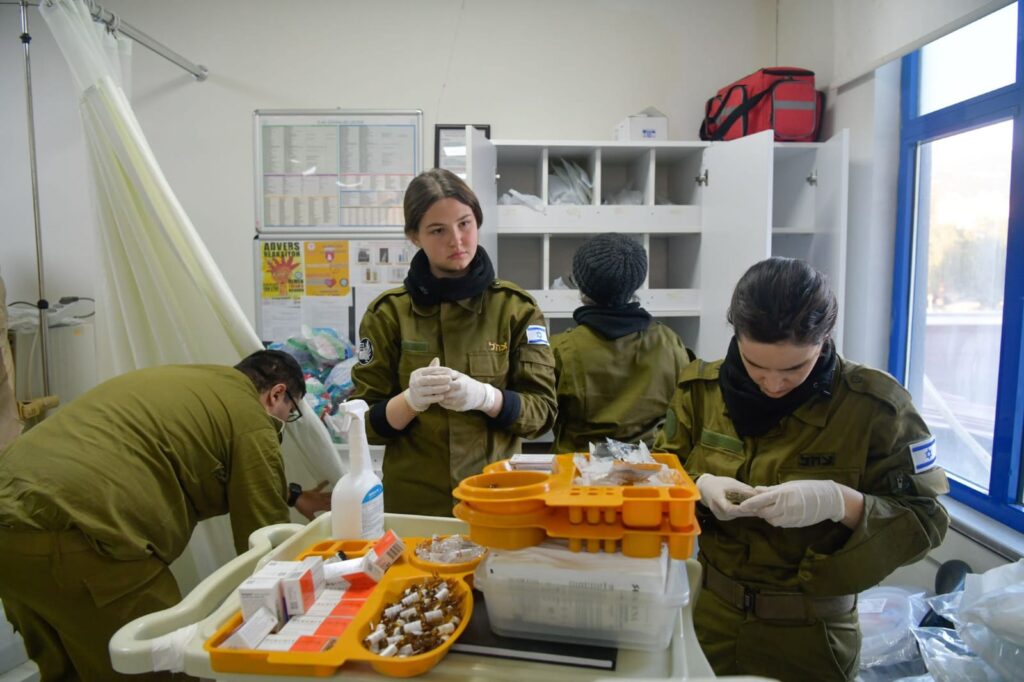
Lior Haiat: We Were There When Turkey Needed Us, and Turkey Was There for Us When We Needed
One of the most powerful earthquakes ever recorded in Turkey struck on February 6 in southern Turkey. More than 40,000 people have been killed and tens of thousands injured. One of the first countries to send aid to the affected areas was Israel which responded immediately to the international appeal from Turkey. We talked with Israel´s Foreign Ministry spokesman Lior Haiat, about the Israeli rescue operations, and Turkey-Israel bilateral relations.
Israel's speed in delivering aid and opening a field hospital caught my attention in Turkey but also in Haiti, Nepal, and Mexico following massive disasters. I must also mention the advanced technical knowledge and equipment. I recently read in former Israeli ambassador to the United Nations Danny Danon’s new book that Israel always has field hospital equipment ready in an airport hangar. Is Israel prepared 24/7 for such search and rescue missions?
In the last decade, we understood that part of preparing our home front for either a war or a disaster is preparing a very professional rescue team. Those rescue teams help bring people out of a building that was hit by a rocket, but it can also work when the building is hit by an earthquake. You should have the most professional teams that can be. They train all the time in order to be ready. When there is a need in the international arena, we send out the best people we have in order to help our friends. We were in Turkey in 1999 [earthquake]. We were one of the first missions to come to Turkey. We also sent people to Mexico after the earthquake and Brazil a few years ago in a different situation.
This is part of what I consider to be Tikkun Olam. Tikkun Olam is a Jewish term that means we want to make the world a better place. It's up to each and every one of us. When there is a need -it doesn't matter where and when- we send a helping hand. We should be there. We're doing this on a daily basis through Mashav. Mashav is the Israeli national cooperation agency that is part of the Ministry of Foreign Affairs. We help people in Third World countries. But we also do that in a situation of war and national disasters. Last year, during the war in Ukraine, Israel was very active in humanitarian aid. We sent a field hospital to Ukraine. As far as I know, it is the only field hospital that was sent by a country to work within the territory of Ukraine. They have treated over 7000 people there. We sent food, tents, and even generators in order to help with the infrastructure of electricity and energy for the people of Ukraine. So this is part of it. We send a helping hand to our neighbors and to everyone who is in need in the world.

Lior Haiat & Karel Valansi
How do you explain the speed of delivering aid and opening a field hospital?
It's based on our military abilities. Those people are ready to act in basically no time in order to help people in Israel. They are very fast in deploying their missions abroad. Some of those people could be ready for action in a matter of two or three hours. The other units are ready for action in less than 24 hours. The faster we can get these people to the airport, the faster we can get them to the field, whether in Israel or abroad.

Israel’s Ashkenazi Chief Rabbi David Lau gave a special ruling permitting rescue operations to continue in quake-hit regions on Shabbat, the Jewish holy day of rest. It is very significant…
One of the basics of Judaism is that the life of a human being is beyond everything. It is beyond Shabbat, beyond the Torah. There's a saying; whoever saved the life of a human being has saved the entire world. So we understand that in emergency situations, Shabbat does not play a major role. We have to be there. We have to continue working just for the chance to save the life of other human beings.
Turkey and Israel have officially exchanged ambassadors after years of tense relations. Last week, Israel’s foreign minister Eli Cohen visited Ankara on a solidarity trip after the massive earthquakes. He met with Mr. Erdoğan and Mr. Çavuşoğlu. I believe you were with them during the meetings. What can we expect from the future of bilateral relations? Can we expect a renewed strategic alliance like in the 1990s?
I think we're taking it step by step. There's been a crisis in the relationship over the last few years. In the last year and a half, maybe a bit less, we've been trying to strengthen our relations and find things that we do see eye to eye on and to go back to a reality where we can talk to one another directly and not through public speeches and accusations. This process reached the point where we have ambassadors; the Turkish Ambassador in Israel and a very good ambassador, the Israeli Ambassador in Ankara. This is the beginning of restructuring the relations between Turkey and Israel. We understand that there are issues that we won't see eye to eye on. That's fine. You don't see eye to eye on everything with all your friends. But there is a way that we can talk to one another to manage our differences and work in a diplomatic way. This is important to us. I have to tell you, this rescue mission, although it came after a year of advancing in the relations between Israel and Turkey, I think we would have done the same thing if we weren't in the same diplomatic situation. Helping one another has nothing to do with our diplomatic relations. We were there when Turkey needed us, and Turkey was there for us when we needed. During the big fire in the Carmel Mountain, Turkey sent firefighters and airplanes to help us.
There are still issues that may cause problems between the two countries, like a controversial decision on Jerusalem or about the Palestinians. But Israel has its own red lines as well. Hamas is an important issue. Is there any development on it?
As I said, there are things that we don't see eye to eye on between the Israeli and Turkish governments, and that's fine as long as we can manage our differences diplomatically. In Israel, it's very important for us to say that we will maintain the freedom of religion and worship in the holy places in Jerusalem and the status quo in the Temple Mount [Haram al-Sharif]. It has been part of our policy for a very long time, and we will continue with this policy. We do consider Hamas to be a terrorist organization. Hamas is promoting terrorism, starting with incitement and educating young people for killing Jews and ending with attacking Israelis with missiles, with terror attacks in Israel and abroad. We think that the way to deal with terrorism is to be very firm and united in our goals. We do understand that we have to talk to our Turkish partners in order to explain our point of view on this matter and in different matters regarding the Israeli policies considering the Palestinians.
Related News









